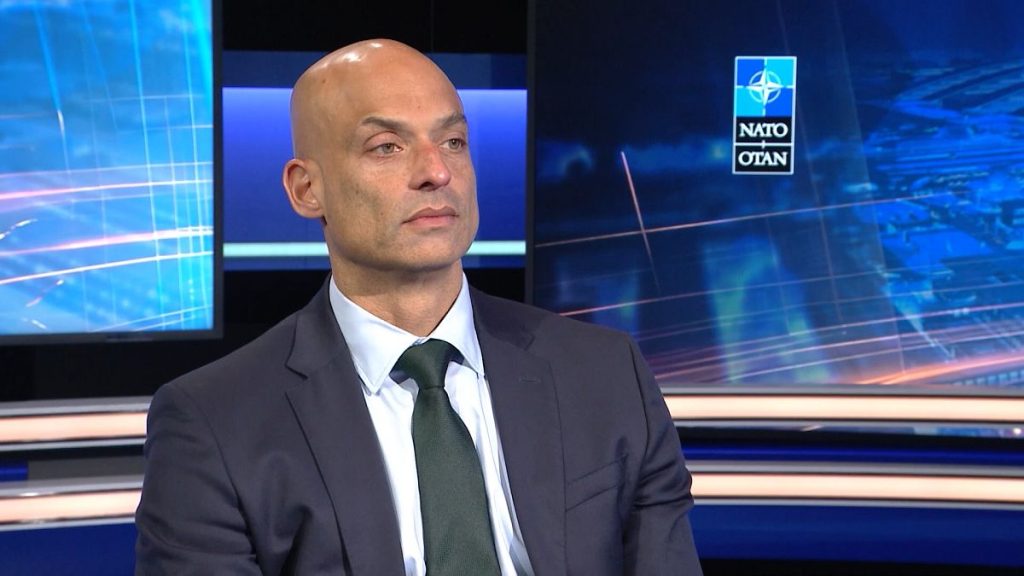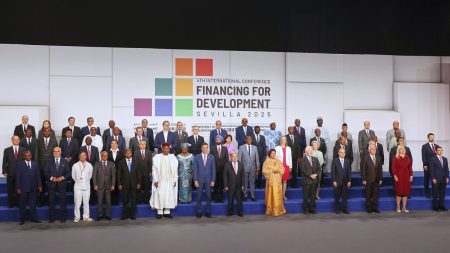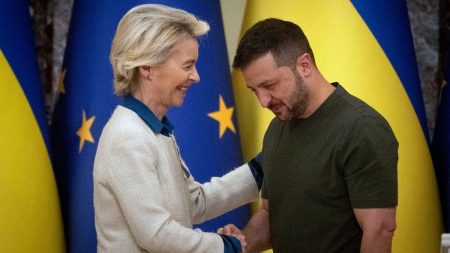Recent interference in undersea cables in Germany, Sweden, Finland, and Lithuania exemplifies the increasing cyber and hybrid threats posed by Russia, according to a NATO expert. James Appathurai, the acting Assistant Secretary General for Innovation Hybrid and Cyber at NATO, has characterized these persistent attacks on undersea cables as “the most active threat” to Western infrastructure. The NATO alliance attributes several of these incidents to Russian activities, marking a troubling trend in cyber and hybrid interference across Europe. Notably, in November, two undersea cables in the Baltic Sea were reportedly severed between Sweden and Lithuania, with another cable damaged between Germany and Finland. These events have sparked significant alarm as member states and NATO officials suspect sabotage is involved in these incidents.
The issues surrounding these cable disruptions highlight the sophistication and scale of Russian interference operations. Appathurai has pointed to a long-standing initiative by Russia known as the Russian Undersea Research Program, which he describes as a well-funded, paramilitary organized structure focused on mapping critical undersea cables and energy pipelines. The program incorporates advanced technologies, including research ships equipped with unmanned underwater vehicles and explosives. This alarming picture underscores how Russia has invested in capabilities that pose serious risks to European security infrastructure, where no country can dismiss the possibility of having its critical communications and energy channels threatened.
In light of these disconcerting developments, government officials in affected nations have wasted no time pointing fingers at potential saboteurs. German Defense Minister Boris Pistorious emphasized that there is skepticism surrounding the idea that such damage could have been accidental, particularly with the historical context of undersea cable vulnerabilities. Similarly, Finnish Defense Minister Antti Häkkänen called for NATO to step up its defensive measures regarding critical infrastructure in the West. These statements reflect a collective unease amongst European nations regarding the growing threats to their stability and security from systematic Russian actions, and they amplify the need for enhanced cooperation to safeguard critical assets.
The coordinated response from NATO member countries has reinforced the narrative that Russia is waging systematic attacks on the European security framework. A joint statement from the foreign ministers of Germany, France, Poland, Italy, Spain, and the U.K. explicitly condemned Moscow’s escalation of hybrid activities against NATO and EU nations. The ministers expressed concerns over the unprecedented variety and scale of these actions, framing them as significant security risks. Given that 90% of the world’s digital communications rely on undersea cables, which also facilitate roughly €10 trillion transactions daily, there is an acute recognition of the economic and strategic implications of Russian cyber hostilities.
In addition to threats to undersea infrastructure, Appathurai highlighted the broader range of cyber threats, including disinformation campaigns and political interference. He noted that while these forms of interference are not new, they have reached heightened levels of activity. The specific focus of Russian operations has shifted towards a more aggressive stance involving sabotage techniques such as arson and targeting key figures in the defense industry. Recent intelligence disclosures revealed foiled assassination plots against leaders like the head of Rheinmetall, which could signify a more insidious effort to disrupt support for Ukraine amidst its conflict with Russia. Such tactics underline a dramatic escalation in the nature of the assaults, targeting not just infrastructure, but also the individuals and institutions that play pivotal roles in geopolitical dynamics.
Overall, the pattern of interference in European undersea cables poses an urgent call to action for NATO and its member states. The patterns emerging from these recent incidents highlight the intersection of traditional warfare and modern technology, as Russia leverages hybrid tactics to challenge and destabilize the European security landscape. The implications extend far beyond technical infrastructure, suggesting that economic stability and national security may be equally at risk if concerted measures are not taken. As the situation continues to unfold, a unified and proactive response from NATO and its allies will be crucial in countering these hybrid threats and safeguarding the essential networks upon which modern society relies.














